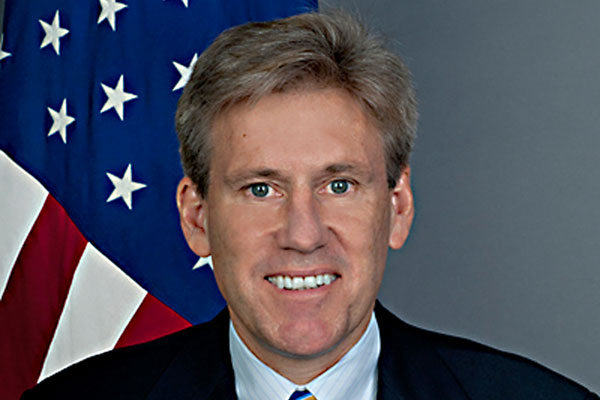Finally, Benghazi Eyewitnesses Speak
Helle Dale /
Last week’s closed-door testimony by five CIA operatives who witnessed the attack on the U.S. special mission in Benghazi has finally created an opening for the congressional investigating committees.
The five CIA contractors, who testified in closed-door hearings before the House Intelligence Committee Thursday and Friday, were stationed at the “CIA annex” in Benghazi, about one mile from the U.S. special diplomatic mission. This was the facility that then-Secretary of State Hillary Clinton tasked Ambassador Chris Stevens to turn into a permanent consulate, even though security staff there was totally inadequate.
The CIA contractors were among those who raced to the mission to the aid of Stevens and his staff as the attack occurred just before 10:00 p.m. on September 11. A myriad of well-armed and well-coordinated attackers had entered through the two security gates. The Libyan militias hired by the State Department ran for safety, and the terrified State Department personnel were cooped up in their “safe room,” a barely fortified communications center at the heart of the compound, calling on their cell phones for help.
The CIA operatives who arrived at the mission, said Representative Lynn Westmoreland (R–GA) in an interview with CNN, “could not believe those guys over there were as unprepared and unequipped as they were.”
Intelligence Committee chairman Devin Nunes (R–CA) last week sent a letter to House Speaker John Boehner asking nine critical questions relating to Benghazi, including, most importantly: Who made the decision not to deploy any U.S. military or diplomatic security assets outside Libya to come to the aid of the Americans under fire?
This question is directly tied to the narrative of events that night. The official version for a while included the ridiculous story that the attack was provoked by an anti-Muslim video. It also held, as per chairman of the Joint Chiefs of Staff Admiral Mike Dempsey and then-Secretary of Defense Leon Panetta, that the attack on the special mission was over so quickly that there was no time to bring in outside reinforcements. Why the continued mortal risk to the 32 staffers at the CIA annex nearby was not considered important is inexplicable.
The official narrative, however, has been challenged by survivors of the attack. Specifically, it is still disputed whether the attack was continuous throughout the night. There appears to have been intermittent gunfire throughout the night, though the battle calmed down from about 2:00 a.m. to 5:00 a.m., at which time a barrage started up, including the mortar fire that killed the two former Navy SEALs, Tyrone Woods and Glen Dougherty.
At issue is also why the Obama Administration has tried its best to prevent eyewitnesses from coming forward. CIA operatives from the annex have told of being forced to sign nondisclosure agreements, which has been disputed by CIA director John Brennan. The State Department has argued that eyewitness testimony would jeopardize any court case against the terrorists, an argument that has now been contradicted by the FBI.
Even if you have no mind for conspiracies, at the very least what is clear is how vulnerable and alone the American diplomats and the CIA agents in Benghazi were, abandoned by the local militias who were supposed to support them, by the Libyan police—and especially by their own government.

